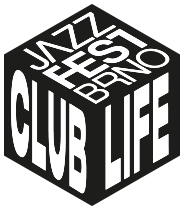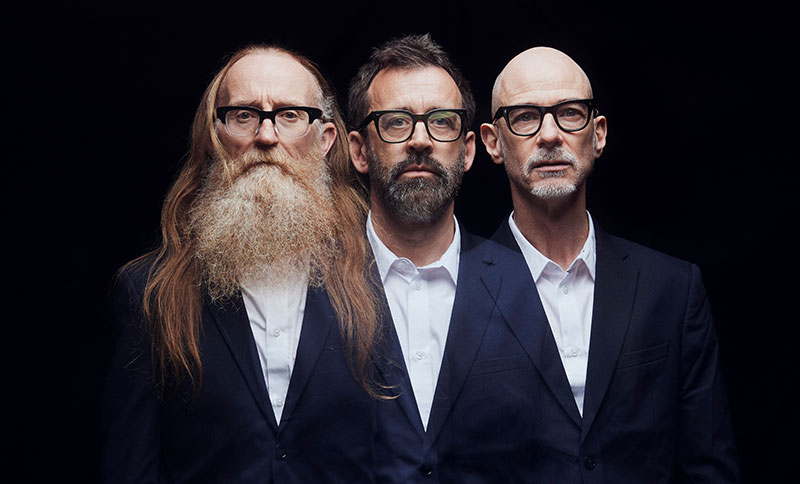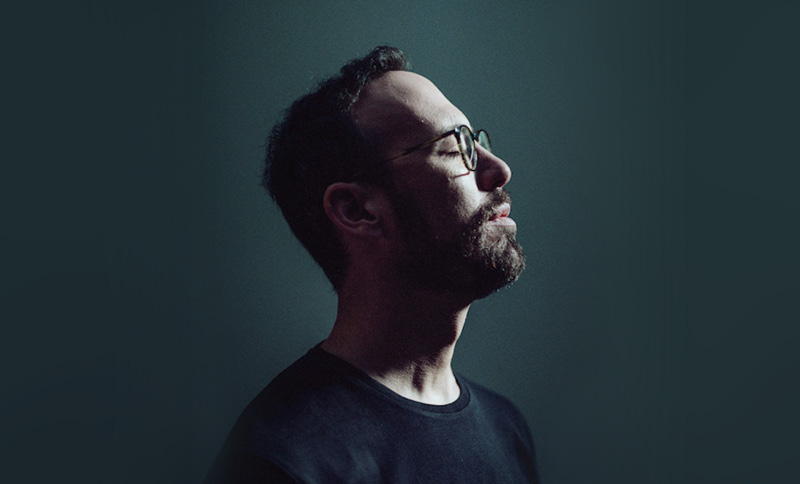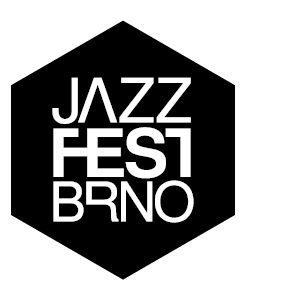Programme


Neil Cowley Trio
25/11/2024, 19.30
Cabaret des Péchés
“Unlike the machines of which we are slaves, we represent something that is unmistakably human; flexible, reactive and fallible,” says fifty-one-year-old British pianist Neil Cowley in reference to the release of his fresh September album Entity. He knows a thing or two about “machines”, musical ones.
Like many others, he began with the classics, even to the extent of performing Shostakovich’s Piano Concerto at the venerable Queen Elizabeth Hall when he was only ten years old. As he emerged from adolescence, he became enchanted by the lighter muses, but nothing of his mastery as a player was lost, and he was able to perform with a number of funk and soul bands, including the famous Brand New Heavies, and to venture into jazz-rock fusions until he worked his way up to more or less pure jazz. He chose the pseudonym Diamond Wookie for his solo debut at the age of twenty-five. He also released music under other “aliases” or as part of the Pretz, Fragile State and Green Nuns of the Revolution projects, until in 2006 he realised it was time to stand on his own and, as is customary in the region, formed the Neil Cowley Trio. It has been very successful from the start, winning a BBC Jazz Award for their very first album Displaced and playing on high-profile shows such as Later… with Jools Holland. Alongside his jazz work, Cowley’s notoriety amongst British musicians crossed genre boundaries, and the pianist became a sought-after sideman, with perhaps his most notable notches in his arm being collaborations on the first two records of the highly successful pop singer Adele.
Neil Cowley Trio regularly released albums every two years – until 2018, when the protagonist put the band to sleep in favour of the need to try something on his own once again, in the early days of working with electronics – which brings us to the aforementioned “machines”. The Hall of Mirrors album, actually the first solo and under his own name, was released in 2021 after three years of musical exploration, and was followed in quick succession by three more releases. Until he realised that “it’s always better with a group”, as the greats say. Calling together old partners, bassist Rex Horan and drummer Evan Jenkins, they blew the dust off the old trio collaboration and introduced themselves, first this June with the sparkling single Adam Alphabet and in September with the full-length Entity, which presented the trio at full strength and in a form more than comparable to its position before the hiatus. “It was like a journey home,” says Neil Cowley of the renewed collaboration. “But Entity is neither a return nor a departure from the original sound. It’s the sound of the Neil Cowley Trio with its finger lifted off the button that says ‘Pause’.”

Yaron Herman
2/12/2024, 18.30 20.45
Vila Tugendhat
With a reputation as a piano and improvisational genius, but also witch a background of an interesting life story in which chance played a role, comes the Israeli musician Yaron Herman, forty-three years old.
For most of his childhood and early youth, Yaron Herman was a sportsman. He left his basketball career at sixteen when he felt the urge to get closer to music. Not only a still hidden talent, but also a particular teaching method, in which seemingly detached disciplines such as mathematics, philosophy and psychology had their impact, made him a very promising pianist within two years. He wavered at Boston’s Berklee, but the prestigious school failed to impress him. New York attracted him with its lively environment, where he spent less than a year jamming in clubs before his visa expired.
“So, I needed to travel to Israel, renew my visa, and then return to New York. Since I had almost no money left, I bought a cheap ticket with a change in Paris. However, there was no connection to Israel due to a snowstorm, so I had to spend the night in France. I didn’t speak a word of French at that time, I had no relation to France, I wasn’t interested in the culture there. But because I didn’t want to stay in a hotel, I went to a jazz club and there I started talking to the musicians who were playing that night. One of them invited me to another gig he was going to have a week later. He offered me to play with him then. And that I could sleep on his air mattress until then. When you’re 18 and someone offers you a week at his place in Paris, you don’t turn it down. And so, I stayed, and gradually it all sort of went wrong,” said Yaron Herman, for whom Paris became a new home, as he recalled in the magazine Harmonie the pivotal “accident” of his life.
He made his debut in 2003 with Takes 2 to Know 1 and his recording and concert work is divided between purely solo and band work, most often as a trio. For Herman, improvisation is essential, in concerts, where especially in solo concerts he does not have a pre-determined programme to play, but also in the studio: “What I appreciate about musicians who have influenced me and whom I consider to be greats is that although they improvise, you get the feeling that it is written music. Because improvisation is not something completely arbitrary, improvisation is composition in real time. I try to do something similar on my albums.” This is also the case with his latest album Alma, which is a purely solo and fully improvised album. “On this album, I wanted to go to the essentials. Without a predefined concept, a plan, an idea of specific themes. Just to sit at the piano, close my eyes and let the music guide me. On an inner journey,” he says.
In addition to his own compositions, Yaron Herman also works on adaptations of taken compositions, which he uses as themes for improvisation. Sometimes he pays homage to his roots by playing pieces by Jewish composers – he has even recorded a jazz version of an Israeli anthem. But like some of his other instrumental colleagues, such as Brad Mehldau, he is not afraid to reach into the realm of popular music for inspiration: he has fished out Leonard Cohen, Nirvana, The Police, and even Britney Spears for his playlist in this way.
Let’s see what the beautiful surroundings of Villa Tugendhat will inspire this extremely creative and somehow naturally original artist to do. And will this inspiration, and therefore the pianist’s programme, be different in the evening and in the afternoon, i.e. between the two concerts Yaron Herman will play in Brno?
Nduduzo Makhathini
Cabaret des Pechés
31/1/2024, 19.30
Béla Fleck
Sono Centrum
15/2/2024, 17.00, 19.30
Bill Laurance & Michael League
Besední dům
17/2/2024, 19.30
Keyon Harrold
Cabaret des Péchés
13/3/2024, 19.30
Lakecia Benjamin
Takuya Kuroda: Midnight Crisp
Divadlo Husa na provázku
21/3/2024, 19.30
Trio Grande
Cabaret des Péchés
26/3/2024, 19.30
New Jazz Underground
Cabaret des Péchés
9/4/2024, 19.30
Samara Joy
Sono Centrum
13/4/2024, 19.30
Gretchen Parlato & Lionel Loueke
Cabaret des Péchés
18/4/2024, 19.30
J3PO
Cabaret des Péchés
21/4/2024, 19.30
Kravchenko Clees Duo
Emmet Cohen Trio
Divadlo Husa na provázku
30/4/2024, 19.30
Snarky Puppy
Sono Centrum
1/5/2024, 19.30
Chris Botti
Janáčkovo divadlo
12/5/2024, 19.30
Slavnosti synkop
Immanuel Wilkins, Kassa Overall, 2in2out, Limbo
Divadlo Husa na provázku
2/6/2024
Al Di Meola
Sono Centrum
17/9/2024, 19.30
Randy Brecker & Rozhlasový Big Band Gustava Broma
Sono Centrum
29/9/2024, 19.30
Jiří Slavík & Polka-Boys: Polkatime
Divadlo Husa na provázku
13/10/2024, 19.30
José James
Cabaret des Péchés
20/10/2024, 19.30
Joel Ross – Good Vibes
Koncertní sál ZUŠ Letovice
21/10/2024, 19.30
Robert Balzar Trio
Matej Benko Quintet
Cabaret des Péchés
22/10/2024, 19.30




